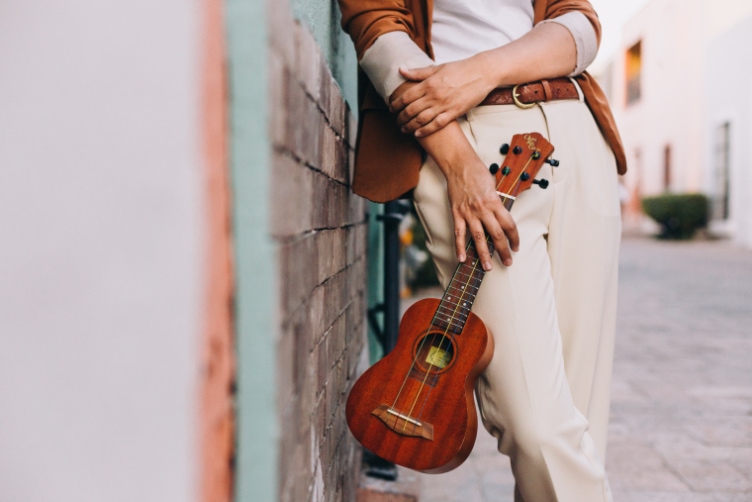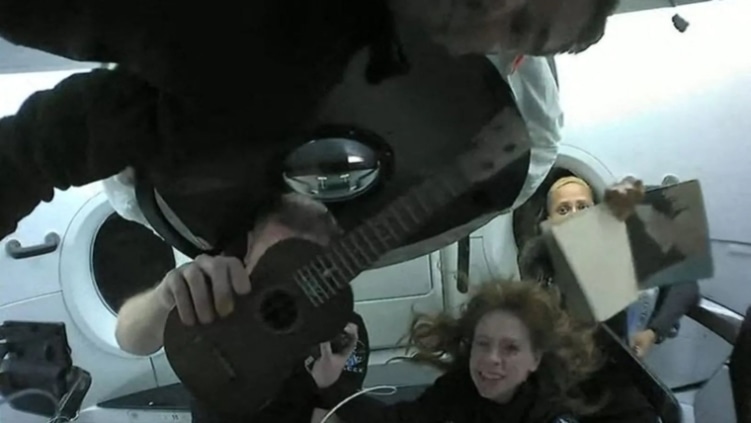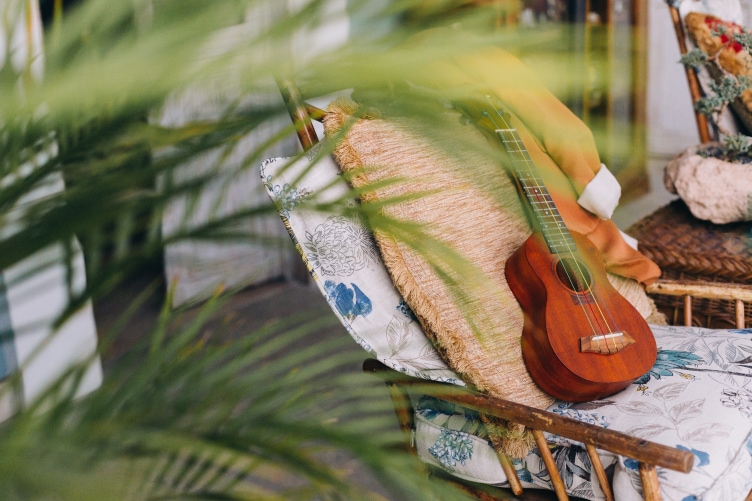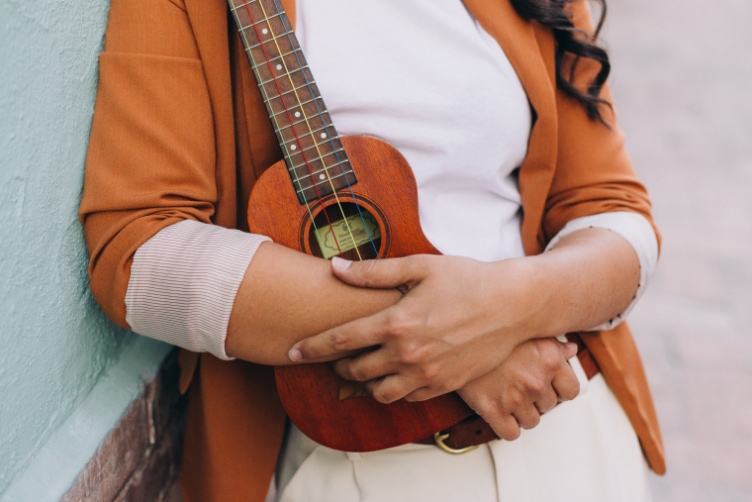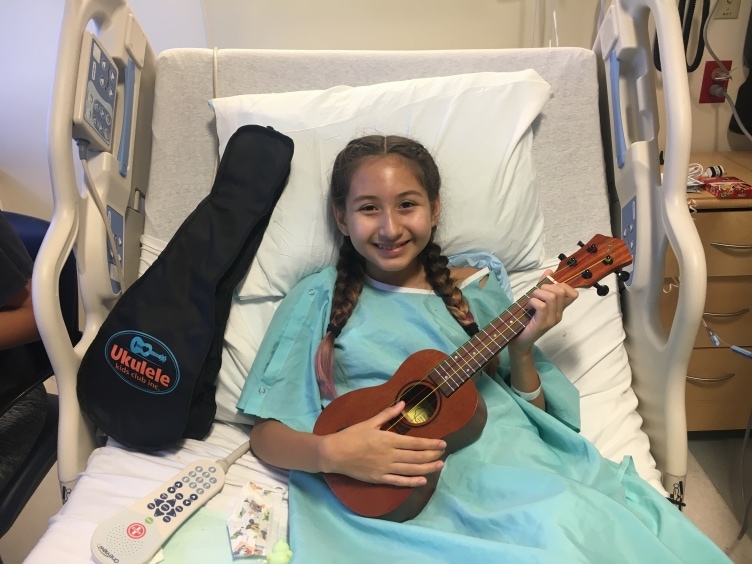The Ukulele Helps Us Heal, Cope and Improve Wellness
By Marlen Rodriguez-Wolfe, M.M
This week a wonderful article came out in NPR highlighting the work of my friend and colleague, music therapist Rebecca Vaudreuil and her amazing work through Creative Forces; An initiative that seeks to improve the health, well-being, and quality of life for military and veteran populations exposed to trauma through creative arts therapy, including music therapy. Rebecca’s amazing work aside, what caught my attention was the opening sentence: “When Michael Schneider’s anxiety and PTSD flare up, he reaches for the ukulele he keeps next to his computer.” The ukulele. Not a guitar, or a trumpet, or a xylophone, but a ukulele.
Time and time again we see the ukulele take center stage in many amazing projects. We have seen it represent humanity in outer space and as the instrument of choice for many of our favorite musicians. But in my opinion, where the ukulele really shines is in making music accessible to all. An instrument that reduces the barriers of entry to music making and says:
“Yes, you too can be a musician! You too can make music. You too can jam with your friends and you can do it with 1 or 2 lessons”. That is a promise not many other instruments can make.
Similar to its Latin American counterpart the Venezuelan cuatro, the ukulele came from the Portuguese cavaquinho. The cavaquinho was brought to the shores of Hawaii by Portuguese migrants in the late 1800s, who later adapted it to what is today known as the ukulele. A 4-stringed instrument that is small in size and big in impact. The ukulele is popular around the world for its portability, ease of playing, joyous tone and supportive community.
We saw its reputation soar even higher during the COVID-19 pandemic. During these hard times, people realized the important role that music played in their lives when it comes to coping and healing from hardships. Just like Michael, from the NPR article above, reached for his ukulele when anxiety and PTSD symptoms flared up, so did the rest of the world. Instrument manufacturers saw sales spikes of the ukulele around the world, in the UK, Japan and the United States.
A recent article about William H Macy’s preference for the ukulele, further explored this topic:
“The ukulele was the most popular instrument on Amazon during the early months of the pandemic, and other retailers saw similar spikes. “I can’t give you numbers, but it turned into the hand sanitizer of the musical instrument world,” said Brad Johnson, Director of Acoustic Instruments and Guitar Accessories at Guitar Center.
This is surprisingly common: Americans have historically turned toward acoustic instruments during times of strife. “CF Martin, they saw a spike in instrument sales during the Spanish Flu,” Johnson said. “They then saw, going into World War II, a big ukulele boom – they had to add on to their factory just to meet demand. During the ’60s, the Vietnam War, acoustic instruments of all types had a boom. And I was working at Guitar Center post-September 11, so I saw that spike myself.” (Sargent, J, 2021)
The ukulele became the go-to instrument for coping with the pandemic because with it, we can experience the wellness benefits of music making, quicker and easier than with any other instrument. If you were already a musician, odds are you found shelter in the instruments you already played. But if you had never played anything before, the ukulele was probably your first choice in learning to make music.

